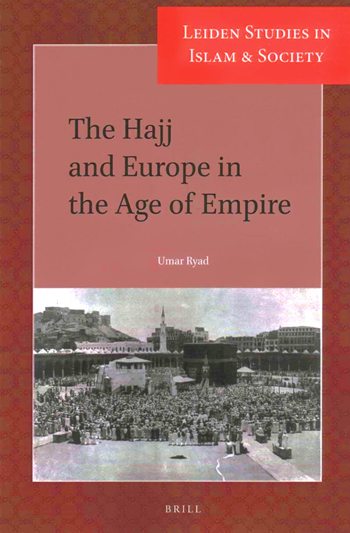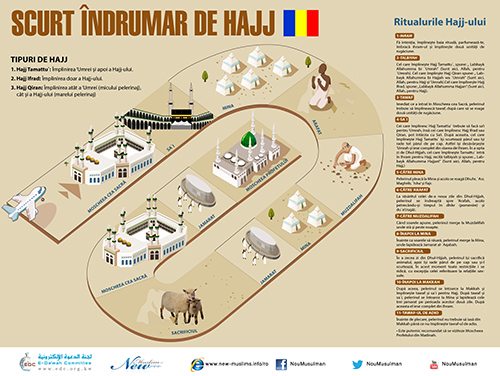
- Umar Ryad
- http://www.brill.com
- 2016
- 286
- 7947
- 4371
- 3429
The Hajj and Europe in the Pre-Colonial and Colonial Age
The Hajj, or the Muslim Pilgrimage to the Holy Places in Mecca and Medina, is not merely a religious undertaking of devotion for Muslims; it is a global annual event that included political, social, economic, and intellectual aspects throughout world history.
The study of Hajj history in the pre-modern and modern eras unravel important mundane human ties and networks of mobility that go beyond its primary religious meanings for millions of Muslim believers around the globe.
In other words, throughout history the Hajj traffic routes and itineraries regularly created new religious, political, social, and cultural contact zones between Muslim regions on the one hand, and with the geographical boundaries of other parts of the world on the other. Since medieval Islamic history, the Hajj had accelerated sea trade as thousands of pilgrims and merchant-pilgrims made their way to Mecca and Medina by sea, stopping at coastal towns where they often traded goods. European connections to the Hajj have a lengthy history of centuries before the influx of Muslim migration to the West after World War ii.
During the colonial age in particular, European and Ottoman empires brought the Hajj under surveillance primarily for political reasons, for economic interests in the control of steamships and for the fear of the growth of pan-Islamic networks. Another important motive for the European scrutiny of Hajj was their anxiety for the spread of epidemic diseases in their colonies after the pilgrims’ return.
The present volume focuses on the political perceptions of the Hajj, its global religious appeal to Muslims, and the European struggle for influence and supremacy in the Muslim world in the age of pre-colonial and colonial empires.
By the term “empire,” we follow in this volume Jonathan Hart’s particular reference to “those western European nations who, beginning with Portugal, began in the fourteenth and fifteenth centuries to expand offshore and later overseas.



















 Afar
Afar Afrikaans
Afrikaans Akan
Akan Albanian
Albanian Amharic
Amharic Armenian
Armenian Assamese
Assamese Avari
Avari Azerbaijani
Azerbaijani Basaa
Basaa Bengali
Bengali Bosnian
Bosnian Brahui
Brahui Bulgarian
Bulgarian Burmese
Burmese Catalan
Catalan Chami
Chami Chechen
Chechen Chichewa
Chichewa Circassian
Circassian Comorian
Comorian Czech
Czech Danish
Danish Dutch
Dutch Estonian
Estonian Finnish
Finnish Fulani
Fulani Georgian
Georgian Greek
Greek Gujarati
Gujarati Hausa
Hausa Hebrew
Hebrew Hungarian
Hungarian Icelandic
Icelandic Indonesian
Indonesian Ingush
Ingush Japanese
Japanese Jawla
Jawla Kannada
Kannada Kashmiri
Kashmiri Katlaniyah
Katlaniyah Kazakh
Kazakh Khmer
Khmer Kinyarwanda
Kinyarwanda Korean
Korean Kurdish
Kurdish Kyrgyz
Kyrgyz Latvian
Latvian Luganda
Luganda Macedonian
Macedonian Malagasy
Malagasy Malay
Malay Maldivian
Maldivian Maranao
Maranao Mongolian
Mongolian N'ko
N'ko Nepali
Nepali Norwegian
Norwegian Oromo
Oromo Pashto
Pashto Persian
Persian Polish
Polish Portuguese
Portuguese Romani - gypsy
Romani - gypsy Romanian
Romanian Russian
Russian Serbian
Serbian Sindhi
Sindhi Sinhalese
Sinhalese Slovak
Slovak Slovenian
Slovenian Somali
Somali Swahili
Swahili Swedish
Swedish Tagalog
Tagalog Tajik
Tajik Tamazight
Tamazight Tashamiya
Tashamiya Tatar
Tatar Thai
Thai Tigrinya
Tigrinya Turkish
Turkish Turkmen
Turkmen Ukrainian
Ukrainian Urdu
Urdu Uyghur
Uyghur Uzbek
Uzbek Vietnamese
Vietnamese Yoruba
Yoruba Zulu
Zulu